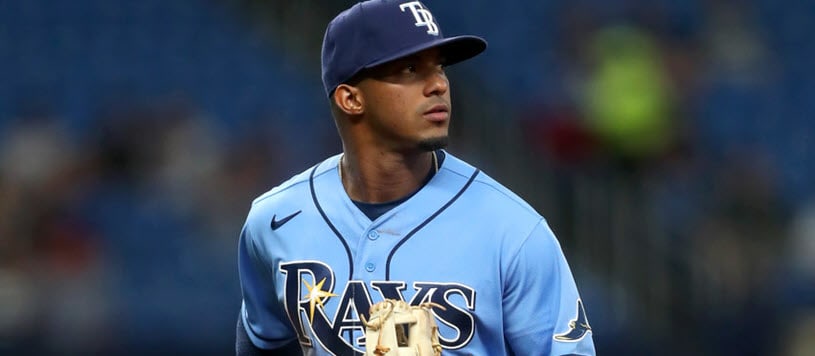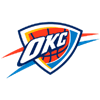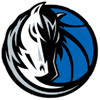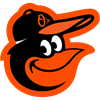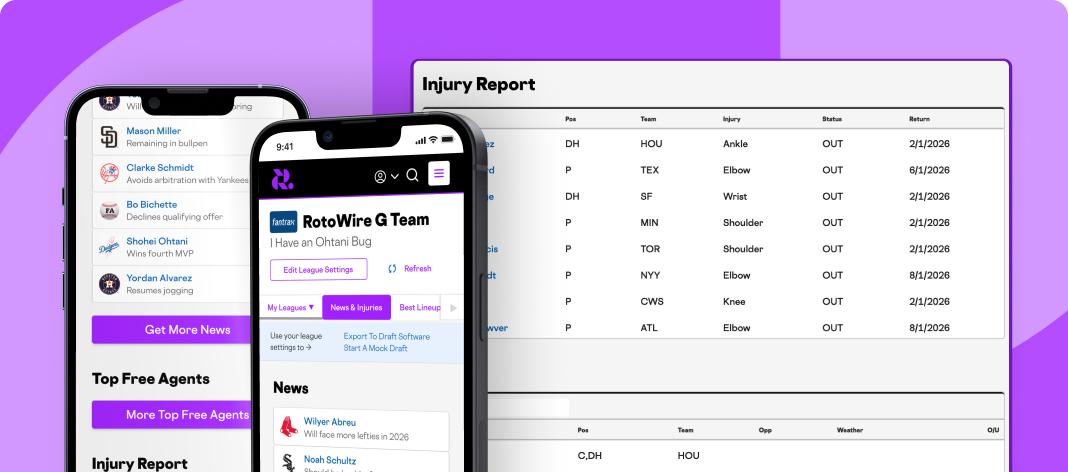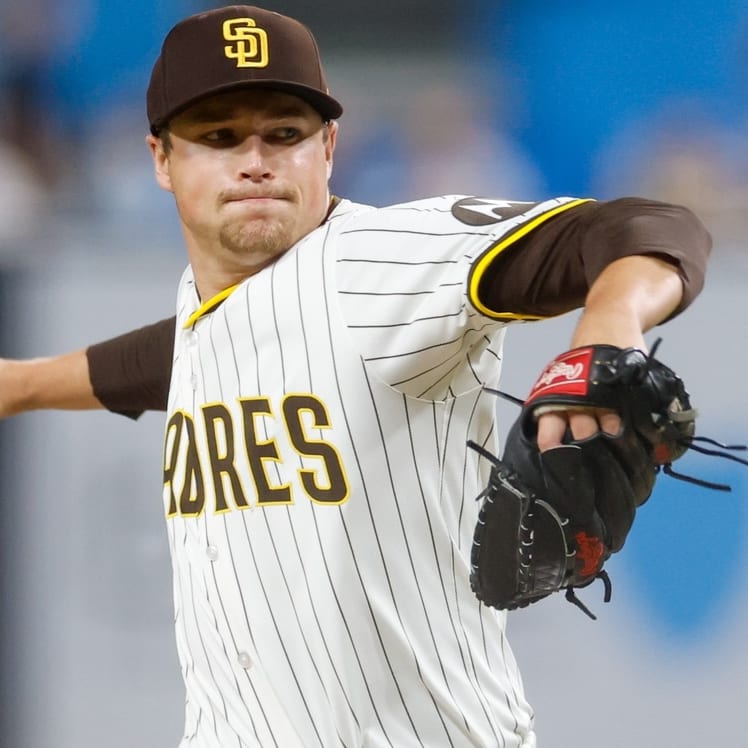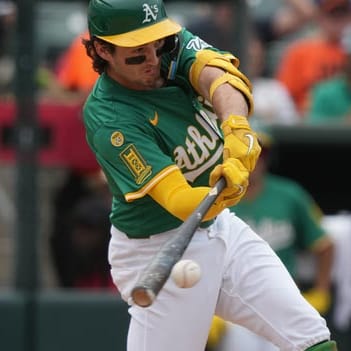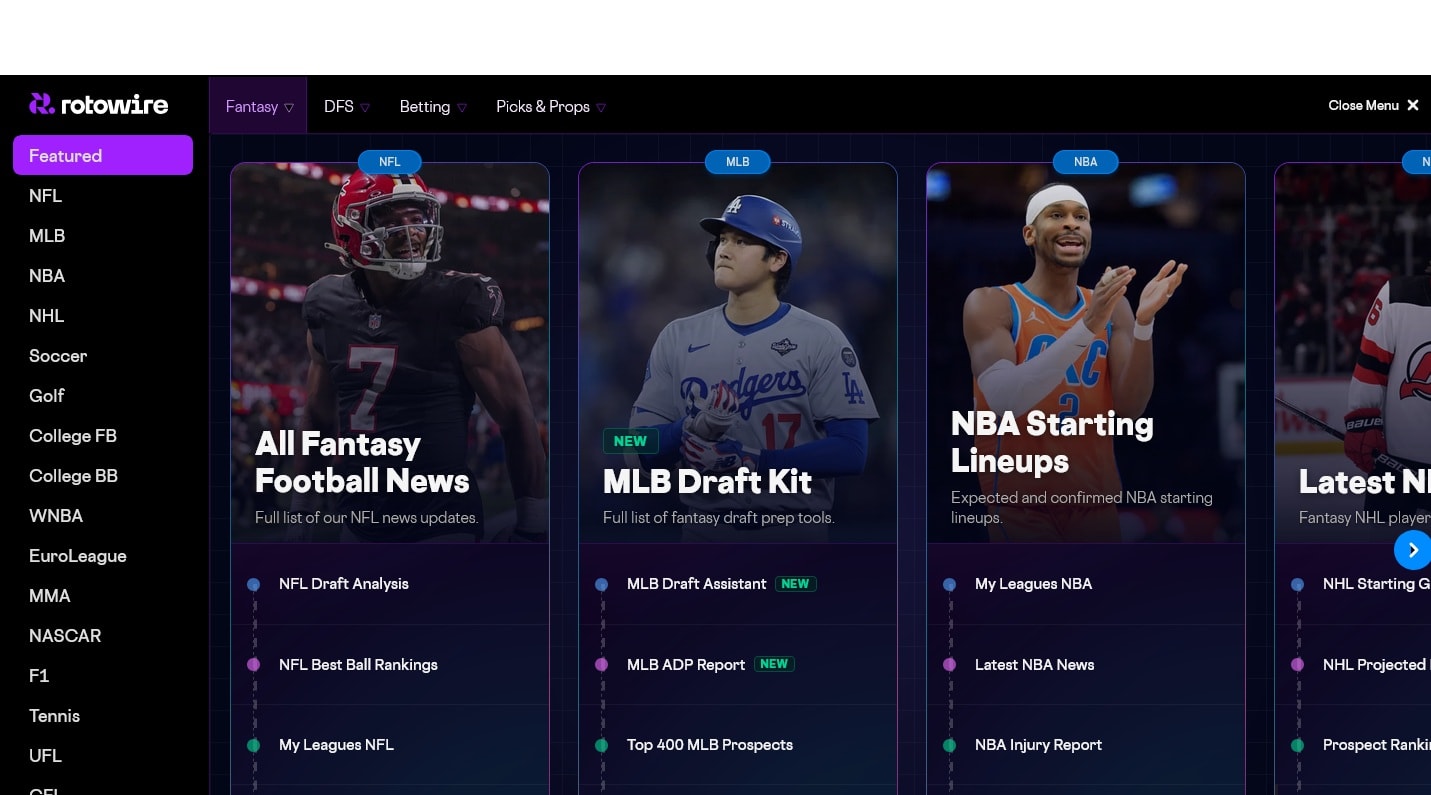You already know by now that Wander Franco is going to miss some time while he recovers from surgery to repair a broken hamate bone. What I did not know, and you may have not known either, was how such injuries occur. Let's learn more together.
If you are a regular reader of the column, you know I have a bit of an injury history. Name a body part and I have likely injured it throughout my weekend warrior career. The hamate bone injury is not one of those, but I did fracture its close cousin 20 years ago -- the scaphoid bone.
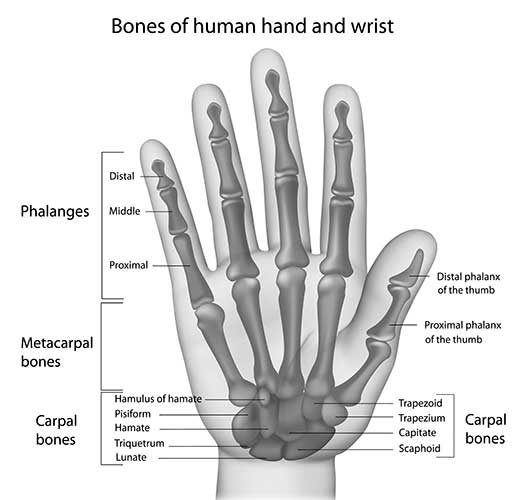
I remember needing to have my wrist in a cast for six weeks with the Orthopedist cutting the cast off midway through to re-evaluate and re-cast. I was 29, so I was still relatively young, but I do remember how useless the hand felt after coming out of a cast for six weeks. I had to wear a splint for at least another week and was unable to resume playing basketball (how I injured it) until a month after coming out of the cast.
I bring this up because the course of treatment and recovery timeline for a hamate injury is rather similar, according to TheInjurySource.com:
.... Surgical treatment of a hamate fracture includes removal of the broken piece, which generally has good results. Keep in mind that due to major nerves around the area of the hamate bone complications of impaired grip strength or nerve
You already know by now that Wander Franco is going to miss some time while he recovers from surgery to repair a broken hamate bone. What I did not know, and you may have not known either, was how such injuries occur. Let's learn more together.
If you are a regular reader of the column, you know I have a bit of an injury history. Name a body part and I have likely injured it throughout my weekend warrior career. The hamate bone injury is not one of those, but I did fracture its close cousin 20 years ago -- the scaphoid bone.

I remember needing to have my wrist in a cast for six weeks with the Orthopedist cutting the cast off midway through to re-evaluate and re-cast. I was 29, so I was still relatively young, but I do remember how useless the hand felt after coming out of a cast for six weeks. I had to wear a splint for at least another week and was unable to resume playing basketball (how I injured it) until a month after coming out of the cast.
I bring this up because the course of treatment and recovery timeline for a hamate injury is rather similar, according to TheInjurySource.com:
.... Surgical treatment of a hamate fracture includes removal of the broken piece, which generally has good results. Keep in mind that due to major nerves around the area of the hamate bone complications of impaired grip strength or nerve pain may occur with surgical intervention. In some instances, high level athletes may opt to proceed with surgical treatment of the fracture as not to risk prolonged recovery due to failed nonoperative treatment. Athletes are usually able to return back to sports completely in approximately 6 to 8 weeks.
I went through some crowdsourcing and digging to find all confirmed notable hitters who have needed hamate surgery in-season in recent memory. Note that neither Jim Thome nor J.D. Martinez are on this list. The former played with the injury for a week in the postseason while the latter ended his final season with Houston with the surgery. I took both of them out of play because they had the entire offseason to recover. The days missed by the players are shown in the table below:
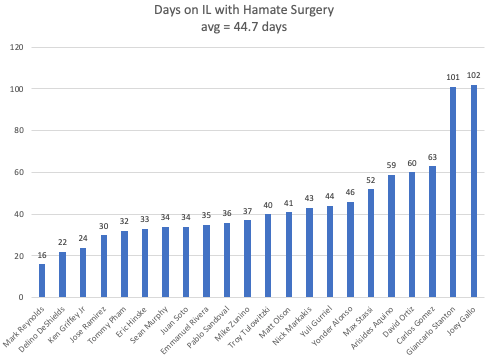
The time missed is very much in line with a study published in August of 2020 which looked at 261 players who had hamate bone surgery between 2010 and 2017. That study found some interesting data points:
- 96% of the injuries were due to hitting
- 86% occurred on the non-dominant hitting side
- 89% were acute fractures
- 96% of the surgeries were performed by hand specialists
- 81% returned to the sport at the same or higher level
- Median time to return to playing was 48 days, with a range from 16 to 246 days.
A player returning is one thing, but returning to form is another. We will often wishcast that a player will pick up where they left off prior to injury. We want these things to happen, but it is not always the case. If you ask most fantasy managers, we've been conditioned to expect the worst for power production from players upon returning from such a surgery. Mark Reynolds broke the mold for everyone returning in just 16 games, but his return was short-lived as an errant fastball broke a different bone in his hand shortly after his return. Giancarlo Stanton is on the other side of the ledger as he never made it back in 2015, stating recovery was, "definitely slower than expected." He never progressed from hitting balls off a tee during the regular season after his surgery on June 26 of that season.
I took a look at the confirmed surgeries for players who have suffered a hamate bone injury during the regular season and found that the change in Isolated Power (SLG-AVG) pre-injury and in the first four weeks upon returning varied greatly:
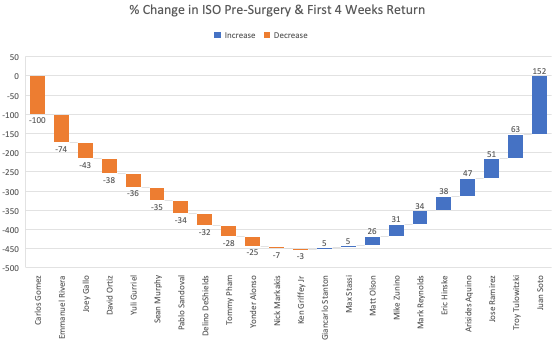
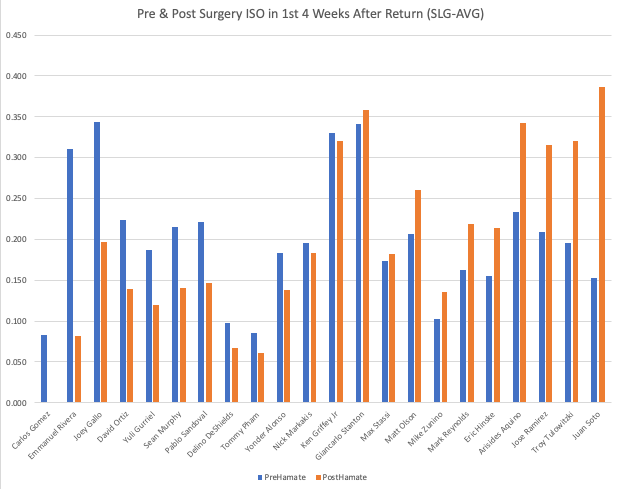
All in all, it would appear to be a wash. There are talented hitters on both sides of that ledger, so place Franco wherever you wish and you'd be correct. This is why I do not believe he is an auto-drop in reset leagues this year if you have the flexibility to keep him on your reserve roster. If he misses 45 days, that puts him back on the team the last week of August, giving him five weeks to contribute to fantasy teams. The good news would be the rest should allow him to fully recover from the quad injury that has nagged him through much of the first half of the season, so perhaps he can steal a few bases down the stretch while attempting to hit for average with his approach.
I know the exact moment I incurred my fracture after smashing into the wall behind the basket in the gym on a rough drive to the hoop (I once had ups!), but the situation is different with baseball players. Most often, the hamate breaks due to repetitive motions of hitting and that spot on the hand absorbing the force transmitted through a bat when it strikes a baseball. This is why you see some hitters using axe-handled bats such as the one shown below rather than the traditional knob bats because the knob isn't putting the pressure on the hamate area of the hand. That said, you also do not see a prevalence of these bats because hamate injuries are rather infrequent and tend to happen to younger players.
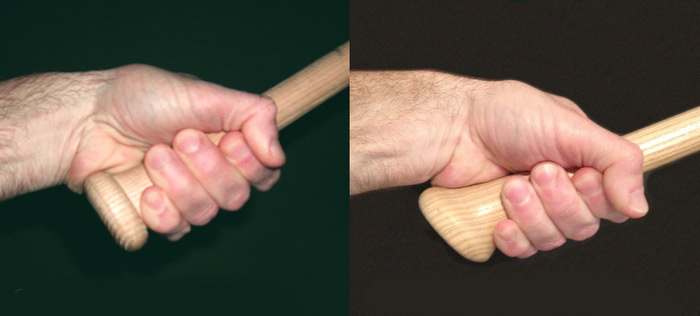
In summary, the overall numbers show that a player such as Franco can come back in-season from his hamate surgery and be productive. He could also come back and hit poorly as some other talented hitters did when they were in a similar circumstance. Research also shows that there are no long-term effects of this injury and this should not change the trajectory of Franco's fantasy future even if this season has been a bust. He could have anywhere from 4-6 weeks of production down the stretch, making it tough to just cut him right now unless your roster is already carrying too many other injured players closer to a return. If the player in your league has dropped Franco, put him on your watch list so you don't forget to grab him as he gets closer to return. You could also acquire him in FAAB this week, with it being a short week, if your rules require you to use acquired players in your lineup immediately.
